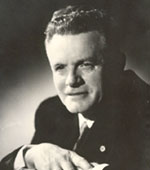
| Your NAME |
| Your CYCLE |
| Your POTENTIAL |
| Your HEALTH |
| Home |
|
|

Kabalarian Ethics of Right ThinkingWritten by the founder, Alfred J. Parker Strive to govern moods and habits so as to create peace and happiness with others through happy, constructive thoughts, through little acts of generosity and service, and through seeing good and God in others. Acts of giving never go unrewarded. Always endeavour to develop an open mind, giving credit to others for mental effort even though they may not as yet have discovered the true light of wisdom. Stand in awe at the threshold of wisdom in humbleness and in deep respect. Remember that wisdom expressed through you is not of your creation but always was. Your endeavour to fit and balance your mind to your higher consciousness of wisdom is your sacred duty and not optional. Only through constant striving to eliminate bad or negative thoughts and habits can your mind feel justly proud to be a sacred part of Divine Consciousness. Mistakes sometimes occur – a mistake is not evil – it may occur through wrong evaluation or sometimes through over-anxiousness, or comparison, or undue optimism. A first mistake may be classified as an error in judgment if a lesson is learned from the experience; if not, then it is a conscious mistake upon a negative plane of mind, and serious and punishable through the law of reaction and your conscious realization that you deliberately created your own test and must now find a solution. Kill out ego and false pride. Never take the know-it-all attitude, for to do so is to kill out natural incentive and progress. Remember that your mind is the greatest instrument in the universe. As you think, so are you, because the nature of your thoughts indicates the plane of mind to which you are tuned; thus, your thinking and you are one. If you did but realize the power of your own mind for good or destructiveness, you would check every thought and utterance. Do not say wrong or hurtful things for fun or to build up your own importance. Remember false pride comes before a fall. Never negate your thoughts and ideas; never say "can’t" or depreciate your ability to equal or better the performances of others. What others have done, you can do, and do better, but do not say so; prove it in greater application than others, for only by effort and application shall your works be known. Never say idle and boastful statements; say only that which is logical and truthful. Learn to know when to speak, and always express your thoughts in a refined and dignified way so as to leave the best impression. Be systematic; proceed step by step, and learn to finish the things you start. Never make a promise that you cannot, or do not, intend to carry out; thus will you always speak truth. Align yourself always upon the side of justice, truth, and honesty. Do not meet others upon the plane of anger, wrongdoing, or thoughtlessness. Always use the power of analysis, particularly when in doubt. Never attempt to alibi that which you know is wrong. Keep your mind always upon a constructive plane of thinking. Remember your sins will always find you out. Always seek for an ideal, an objective, and the proper method of application. Create a refined and individual personality, a happy and generous one. Develop clean and tidy habits, body cleanliness, and a clean mind. Be conservative, yet creative, in your dress. Avoid showiness in dress and loudness in speech. Make others want to pattern themselves after you: that is a well-deserved compliment, and indicates adherence to Kabalarian ethics of right thinking.
|
©Kabalarian Philosophy 2024, Vancouver, Canada
CP4974-AshburnDC-Feb-24

 Appreciate and respect the Power of the Word (speech); never misuse this
power by swearing, vulgarity, lying and deceit, falsifying another’s statement,
or destroying the reputation of others.
Appreciate and respect the Power of the Word (speech); never misuse this
power by swearing, vulgarity, lying and deceit, falsifying another’s statement,
or destroying the reputation of others.